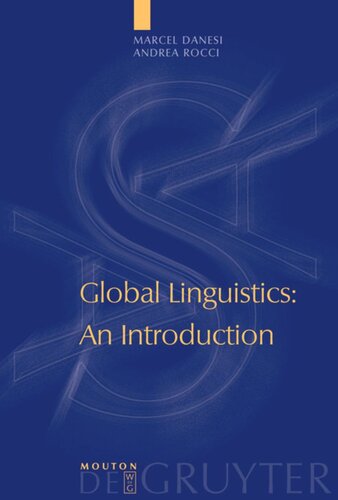

Most ebook files are in PDF format, so you can easily read them using various software such as Foxit Reader or directly on the Google Chrome browser.
Some ebook files are released by publishers in other formats such as .awz, .mobi, .epub, .fb2, etc. You may need to install specific software to read these formats on mobile/PC, such as Calibre.
Please read the tutorial at this link: https://ebookbell.com/faq
We offer FREE conversion to the popular formats you request; however, this may take some time. Therefore, right after payment, please email us, and we will try to provide the service as quickly as possible.
For some exceptional file formats or broken links (if any), please refrain from opening any disputes. Instead, email us first, and we will try to assist within a maximum of 6 hours.
EbookBell Team

4.8
74 reviewsThe book provides an introduction to an interdisciplinary field of inquiry that can be called "global linguistics" (GL). GL emerges to tackle the ever-growing phenomenon of intercultural communication (IC) in today's world of international contacts. The specific aim of GL is to look at the form and contents of dialogues among speakers of different cultural backgrounds who will use a "default language" or koiné (usually English) to interact, in order to detect communication breakdowns at various levels of "depth", as well as the opportunities for developing sound intercultural communication practice.
The book includes an accessible presentation of fundamental questions concerning languages and language use. Among the questions addressed are the universal design features of languages, the connection between language and conceptual systems, how people use language to coordinate their actions and interact in a variety of social contexts, and the place of language in a semiotic view of culture. The volume also addresses how language, context and culture shape the way in which we argue a point and try to persuade other people, and why intercultural argumentation is both necessary and risky.
Global Linguistics: An Introduction describes fundamental notions in linguistics and cognate fields and is thus well-suited for use as a textbook in courses dealing with IC in general. At the same time, the book is of general interest to scholars in linguistics and communication studies, as it places particular emphasis on theoretical models such as argumentation theory and conceptual metaphor theory, which are generally not presented in textbooks on language and IC.